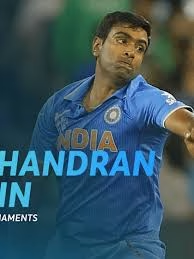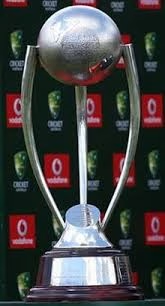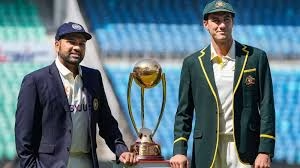Ashwin’s retirement is the news that shocked the cricket world after India’s draw in the third Test of the Border-Gavaskar Trophy in Brisbane.
Notably, Ashwin did not play in that match, although he had been part of the pink-ball test at Adelaide Oval earlier, where he contributed with both bat and ball.
Before this series, Ashwin had been part of a surprising home Test loss to New Zealand, India’s first in 12 years. Ashwin had been instrumental in India’s success in Test cricket at home.
Former Australian cricketer Brad Haddin suggested that Ashwin’s retirement was due to frustration over not being selected for the playing eleven.

“Brad Haddin: Ashwin’s Retirement Due to Selection Disappointment”
Former Australian wicketkeeper Brad Haddin believes Ravichandran Ashwin, an Indian spinner, may have announced his retirement due to disappointment in not being picked in the playing XI during the Border-Gavaskar Trophy. Ashwin, who has a record of 537 scalps in 106 matches, may have communicated to the team that he doesn’t want to be on the bench for the entire series.
Haddin believed that Ashwin considered himself the “number one spinner” and chose to retire on his terms instead of sitting on the bench if he wasn’t seen as essential to the team.

India lost the Border-Gavaskar Trophy 1-3, with Australia clinching victory in the final Test. This loss also eliminated India from the ICC World Test Championship final.
Ashwin had an impressive career, taking 537 wickets in 106 Tests and scoring 3,503 runs with six centuries. He is the second-highest wicket-taker for India in Tests and played key roles in India’s victories in the 2011 ICC Cricket World Cup and the 2013 ICC Champions Trophy.
“Brad Haddin Believes Ashwin’s Retirement Came Due to Frustration Over Team Selection”
Ravichandran Ashwin’s mid-series retirement during the Border-Gavaskar Trophy was likely due to frustration over his non-selection, according to former Australian wicketkeeper Brad Haddin.
Haddin suggested that Ashwin, India’s all-time highest wicket-taker in Tests, felt let down by the team’s decision to play three different spinners in the first three Tests, signaling a lack of clarity in the team’s approach.

Ashwin, known for his elite record, reportedly decided he wouldn’t settle for being benched, choosing to retire on his own terms after playing in the second Test in Adelaide.
Ashwin’s Mid-Series Retirement sparks controversy
Ravichandran Ashwin’s surprise retirement mid-series during India’s tour of Australia sparked speculation about his reasons for stepping away. Ashwin was left out of the Perth and Brisbane Tests, despite being included for the Adelaide Test.
After the drawn Brisbane Test, he announced his retirement and returned home, marking his last international appearance in Adelaide, which India lost in three days. The timing of his decision led many to believe he felt unfairly treated by the management. Ashwin’s father even expressed concerns over his son’s treatment.

Former Australian captain Brad Haddin shared his thoughts, suggesting Ashwin’s frustration likely stemmed from the team’s lack of a clear game plan, particularly the rotation of spinners throughout the series. Haddin believed Ashwin, with his stellar record, was frustrated with being left on the bench for two of the first three Tests.
Ashwin finished his career with 537 wickets in 106 Tests, cementing his place as one of India’s greatest bowlers. His departure leaves a significant gap, with Washington Sundar seen as a potential successor.
Early Career and Debut
Ravichandran Ashwin, a right-arm off-spin bowler and lower-order batter, debuted in international cricket in 2010. His early years saw him make an immediate impact, with Ashwin becoming the fastest Indian to reach 50 wickets in Test cricket by 2012.
His performance during India’s home series against New Zealand and subsequent tours helped establish him as a key player in the team. He also contributed with the bat, showcasing his all-rounder abilities, and was part of India’s winning squad in the 2011 Cricket World Cup.
Achievements and Records
Ashwin is widely regarded as one of the most prolific spinners of all time, having taken over 500 wickets in Tests. He holds several records, including being the fastest bowler to reach 300 Test wickets.
He is tied for the most Man of the Series awards in Tests, with 11 to his name, and has also achieved the rare double of 3000 runs and 500 wickets in Tests. His career has been marked by dominance, particularly in home conditions, where he claimed over 350 wickets at an average under 22.
Success in International Tournaments
Ashwin has been instrumental in India’s success in various international tournaments. He was part of the team that won the 2013 ICC Champions Trophy and was named in the “Team of the Tournament.”
He also contributed significantly in World Cups and T20 World Cups, with notable performances in 2015 and 2016. His contributions in all formats of the game were recognized, as he was regularly included in the ICC’s Test and ODI teams of the year.

Indian Premier League (IPL) and Domestic Cricket
Apart from international cricket, Ashwin made his mark in the Indian Premier League (IPL). He was part of several teams, including Chennai Super Kings, Kings XI Punjab, and Delhi Capitals, taking 150 wickets in the tournament.
Ashwin’s leadership qualities were showcased when he captained Kings XI Punjab in 2018. His performances in the IPL further solidified his reputation as one of the best spinners in the game, even contributing to rule changes with his innovative tactics.
Retirement and Legacy
Ashwin announced his retirement from international cricket in December 2024 after a career spanning 14 years. Despite his retirement, his legacy in Indian cricket remains strong.
He has left a significant impact with his record-breaking performances and his versatility as both a bowler and a batsman.
Ashwin’s retirement marks the end of an era for Indian cricket, and his influence on future spinners, such as Washington Sundar, will continue to inspire generations.





